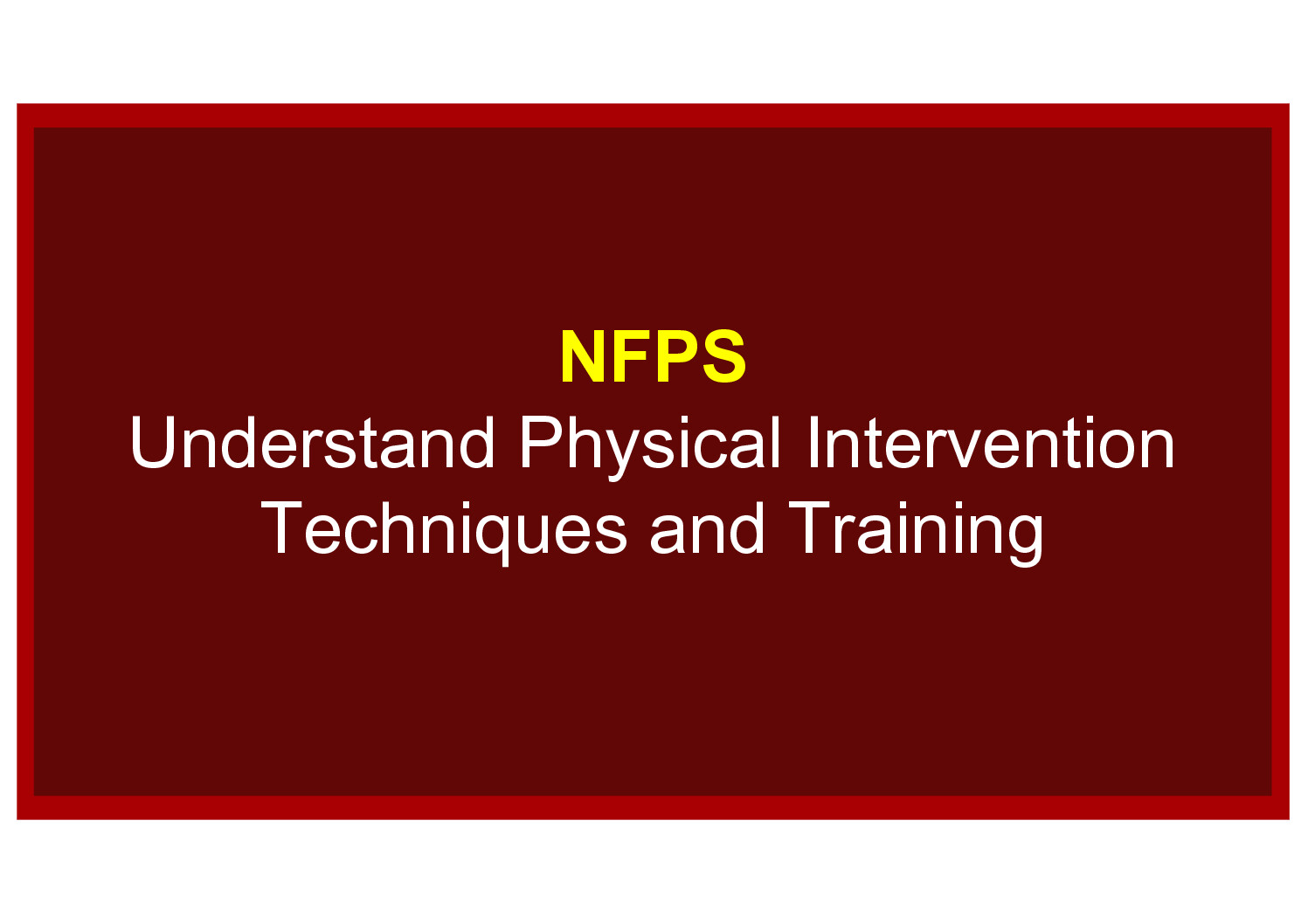Physical intervention plays a critical role in various sectors, including healthcare, education, security and other work-related sectors. It involves the use of techniques to manage potentially dangerous situations and ensure the safety of all parties involved. In this article, we will delve into the concept of physical intervention, explore examples of its application, discuss the main types of physical intervention, and understand its significance in the context of security, particularly within the Security Industry Authority (SIA) framework.
What is a Physical Intervention?
Physical intervention refers to the controlled use of force or techniques to manage and de-escalate situations that may involve aggression, violence, or potential harm. These techniques are employed by trained professionals to maintain safety, protect individuals, and prevent situations from escalating further. Physical intervention training equips individuals with the skills necessary to handle difficult situations responsibly and effectively.
Example of a Physical Intervention
Imagine a scenario in a healthcare setting where a patient becomes agitated and threatens harm to themselves or others. In such cases where talking to someone has failed, a trained healthcare professionals may use physical intervention techniques to safely restrain the patient, minimising the risk of harm while ensuring the safety of all parties involved.
The Three Main Types of Physical Intervention
- Personal Protection Techniques: These techniques focus on creating a safe distance between the professional and the potentially aggressive individual. Strategies may include verbal de-escalation, maintaining a non-threatening stance, and utilising communication skills to defuse tension.
- Non-Restrictive Holding Techniques: These techniques involve controlled holds and grips to restrict an individual’s movements without causing harm. Trained professionals use these methods to gain control over a situation and prevent harm from occurring.
- Restrictive Holding Techniques: These techniques are employed as a last resort when other methods have proven ineffective. They involve carefully controlled holds and restraints designed to immobilise an individual’s movements while minimising the risk of injury.
Physical Intervention within the SIA Framework
The Security Industry Authority (SIA) recognises the importance of physical intervention training within the Private Security Industry. Professionals seeking to enhance their skills can benefit from specialised courses such as the BTEC Level 3 Restraint Instructor Award Course, which provides comprehensive training in teaching effective physical intervention techniques. Additionally, the BTEC Level 3 Deliverers of Physical Intervention To The Private Security Industry Award focuses on training individuals to deliver physical intervention techniques within the Security Sector.
To complement physical intervention training, the BTEC Level 3 Award in The Delivery of Conflict Management Training equips individuals with conflict management skills, helping them to navigate challenging situations and reduce the likelihood of escalation.
For those aspiring to become trainers and educators in this field, the BTEC Level 3 Award in Education and Training is an essential qualification that provides the necessary tools to effectively teach physical intervention techniques to others.
Conclusion
Physical intervention is a vital skillset for professionals across various sectors, enabling them to manage challenging situations while prioritising the safety and well-being of all parties involved. Through specialised training programmes, such as those offered by the NFPS Ltd, individuals can acquire the knowledge, skills and expertise needed to navigate complex scenarios with confidence and competence.
As you embark on your journey to understanding physical intervention, remember that responsible and well-executed techniques can make a significant difference in maintaining a safe environment for everyone.
BTEC Educational Training Qualifications
Our training is quality assured and will provide you with the legal, medical and duty-of-care comprehension related to supporting and managing people whilst maintaining the highest of standards.
If you have a passion and desire to support people and want to formally take your professional knowledge the next level and receive a training qualification to teach others, this course is the only course for you.
You may already be a qualified trainer seeking to up-skill your knowledge and understanding by taking one or more of the additional qualifications we offer (see what additional awards you can take further down the page).
Legally Defensible and Medically Reviewed Courses That Support You
Our programmes have undergone a robust medical review and are legally defensible.
Furthermore, following your course with us we remain on-hand to provide you with any support, advise or guidance you may need (as previously discussed).
Contact us to learn more about courses taking place during September 2023

